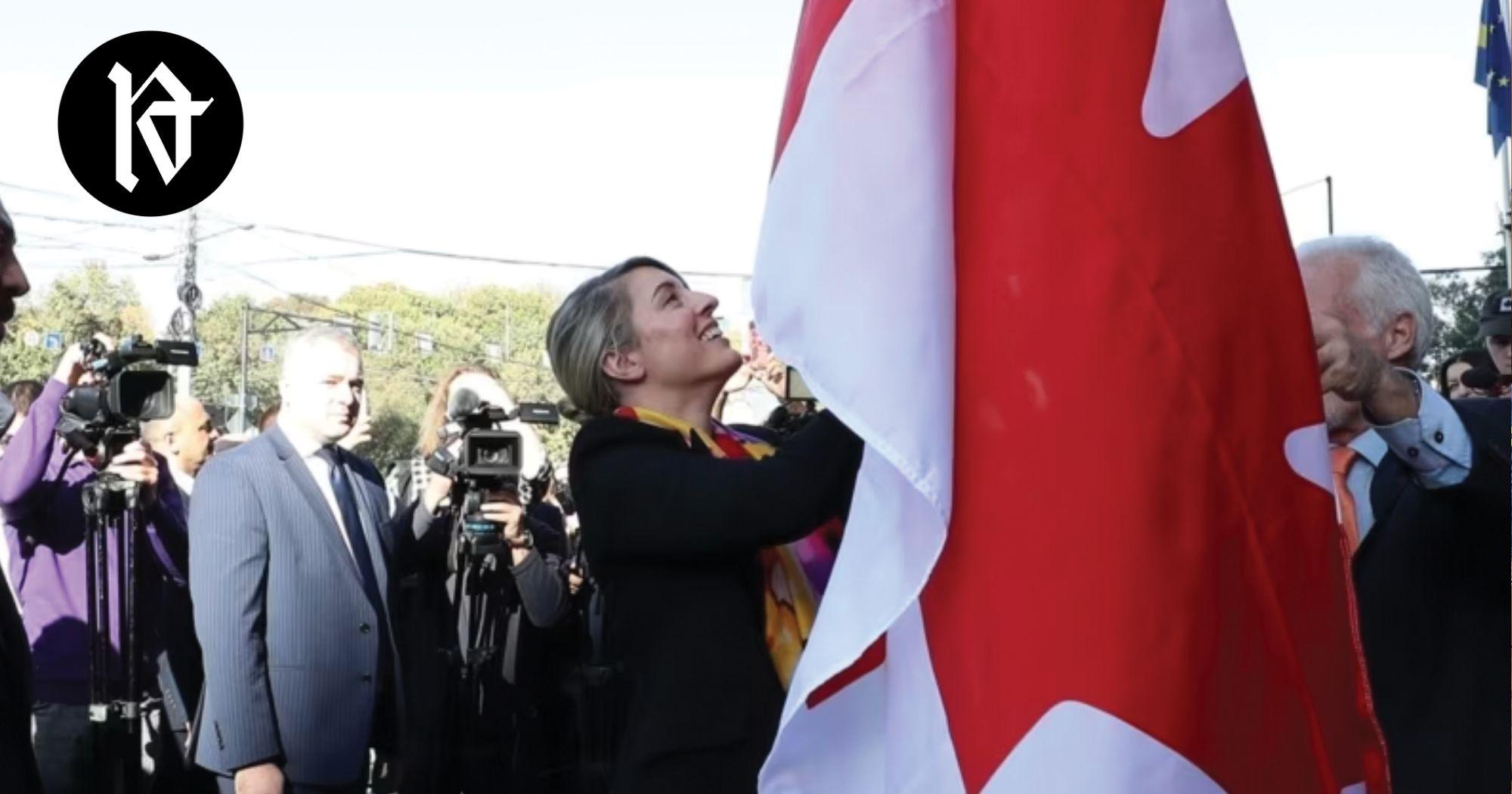YEREVAN–Canada has intensified its diplomatic and humanitarian efforts in Armenia. In a two-fold development, the nation’s Minister of Foreign Affairs, Mélanie Joly, inaugurated Canada’s first embassy in Yerevan. The visit also saw Canada pledge further humanitarian aid for those affected by the ethnical cleansing of Artsakh (Nagorno-Karabakh).
The embassy’s opening marks a significant step in strengthening bilateral relations between the two nations. “The official opening of the Canadian Embassy in Yerevan is a historic day for the Armenian-Canadian community and a positive development in the bilateral relations, which must serve as an opportunity for Canada to increase its commitment to Armenia and Armenians,” the Armenian National Committee of Canada (ANCC) said in a statement.
Against the backdrop of escalating tensions, Canada has shown deep concern for the refugee crisis in Armenia, particularly following the ethnic cleansing of Artsakh by Azerbaijan. Over 100,000 individuals have been displaced due to the conflict. During her visit from Oct. 25 to 27, Minister Joly announced Canada’s consolidated humanitarian assistance funding to the crisis would be increased to $3.9 million.
A fresh allocation of one million dollars (CAD) will be allocated to the United Nations High Commissioner for Refugees. This funding will facilitate essential services like protection, shelter, and other non-food items. The total response now includes prior contributions to the International Committee of the Red Cross and the Canadian Red Cross Society’s Emergency Disaster Assistance Fund. These funds are directed at relief operations in Armenia, with the Armenian Red Cross Society providing water, sanitation, hygiene, and health services. World Vision Canada has also received funding through the Canadian Humanitarian Assistance Fund, intended for hygiene kits, cash assistance, psychosocial support, and protection assistance.
During her visit, Minister Joly emphasized the importance of abiding by international humanitarian laws, ensuring the unobstructed delivery of aid and protection of civilians, including those on the move. She stressed, “Canada is grateful to Armenia for welcoming those fleeing this crisis. Host communities have generously opened their doors, but they alone cannot support this large influx of people seeking refuge. With this humanitarian support, Canada is helping address some of the most urgent needs.”
In addition, Ahmed Hussen, Minister of International Development, highlighted the challenges faced by Armenia in accommodating the displaced population. “Many people who have fled to Armenia are vulnerable, and with such a high volume of arrivals, the country is struggling to help the displaced populations. The funding announced today will go toward meeting the rising humanitarian needs and take some of the pressure off host communities,” Hussen said in a statement.
The ANCC expressed that despite all the challenges, it is encouraging to see that Canada consistently calls for the self-determination of the people of Artsakh. “…But more needs to be done,” read a part of the statement. “Today’s meeting with the forcibly uprooted citizens of Artsakh was an important step to support their democratic aspirations and their right to safely return to their ancestral homeland.”
Last month, the Canadian government named Andrew Turner, a career diplomat, to be the ambassador to helm the new embassy. Turner’s experience with the Middle East and involvement in shaping Ottawa’s response to the unfolding humanitarian crisis in Armenia underlines Canada’s strategic interest in the region. The decision to establish an embassy was announced in June 2022, intending to boost Ottawa’s knowledge of the Caucasus and to aid in visa and passport services.
The recent attacks by Azerbaijan in Artsakh have deeply affected civilians. Canada has been persistent in its call for a negotiated political solution and promotes principles of non-use of force, territorial integrity, and self-determination to resolve the conflict.
During her visit, Minister Joly also shared images of her meeting with a group of Armenian women who were forced to leave Artsakh and seek refuge in Armenia. In a heartfelt message accompanying the photos on the social media platform, Joly expressed that it was important for her to listen and learn from Armenian women who fled Artsakh. “I was moved by their strength and courage. Canada will continue to stand with the ethnic Armenian people of Nagorno-Karabakh and their right to safe return,” read a part of her post on X (formerly Twitter).
While in Armenia, Joly also visited the European Union Mission in Armenia (EUMA) in the city of Jermuk. “Bolstered through Canada’s third-party contribution, the EUMA works to monitor the border between Armenia and Azerbaijan, ensuring vital stability and security in [the] South Caucasus,” she stated. She also visited Tsitsernakaberd, Armenia’s official Armenian Genocide Memorial in Yerevan, where she paid her respects to the victims and survivors of the Armenian Genocide. To commemorate the visit and in a gesture of solidarity, she planted a tree in the complex’s memory garden, reaffirming Canada’s acknowledgment and support in recognizing the historical tragedy. ֍

